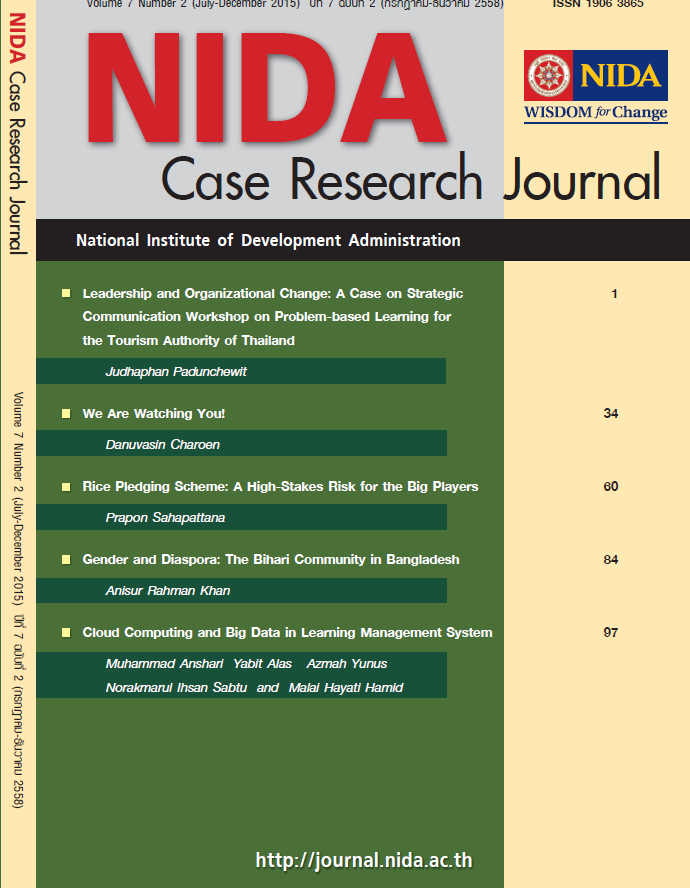RICE PLEDGING SCHEME: A HIGH-STAKES RISK FOR THE BIG PLAYERS
Keywords:
Rice Pledging Scheme, Policy Development, Policy Implementation, ThailandAbstract
After the Yingluck’s government won the election and came to the office in 2011, many policies were announced and formed including economic policies. One of the largest economic policies in terms of the government budgeting involved was rice pledging scheme. Government committed pledging prices of 15,000 baht per ton for white rice paddy starting from October 2011 without limit of rice quantity to buy. The key mechanisms for the government to implement this policy included Bank for Agriculture and Agricultural Co-Operatives, Public Warehouse Organization, Marketing Organization for Farmers, etc. The estimated budget was set to 410,000 million Baht.
One year after approval, the project faced many problems and various criticisms. Inevitably, rice pledging was one of the hottest issues in the censure motion in November 2012. Among many problems including government high debt to support the program, the protest from foreign countries against the Thai government free trade intervention, and the lost of the number one world rice exporter, corruption in different levels related to the pledging process put the government in a difficult situation.





